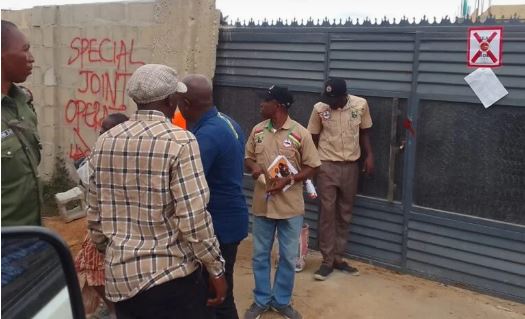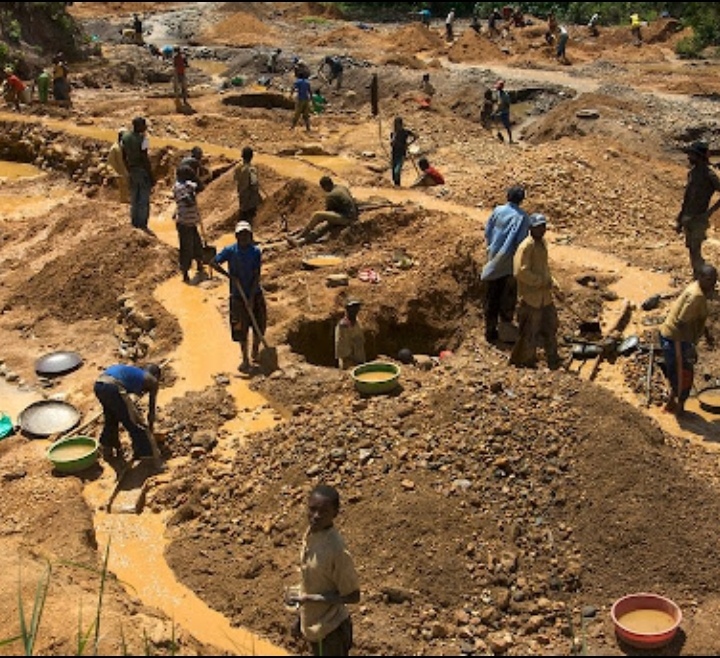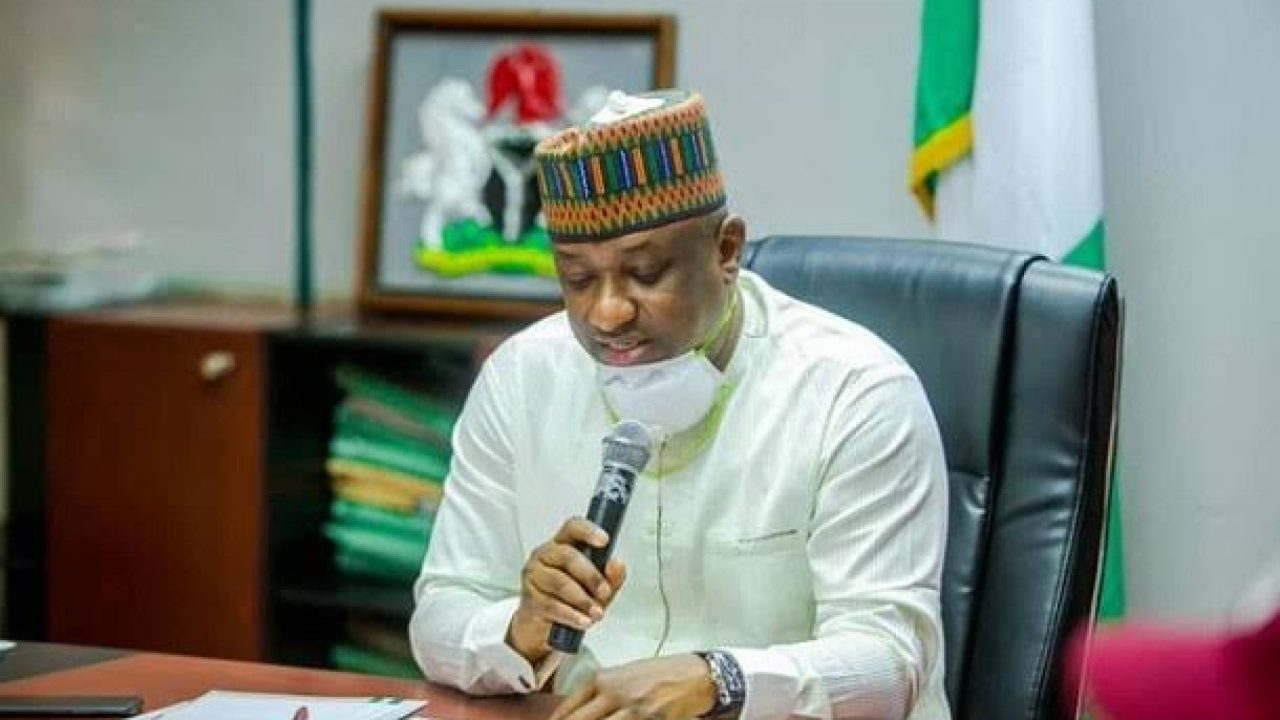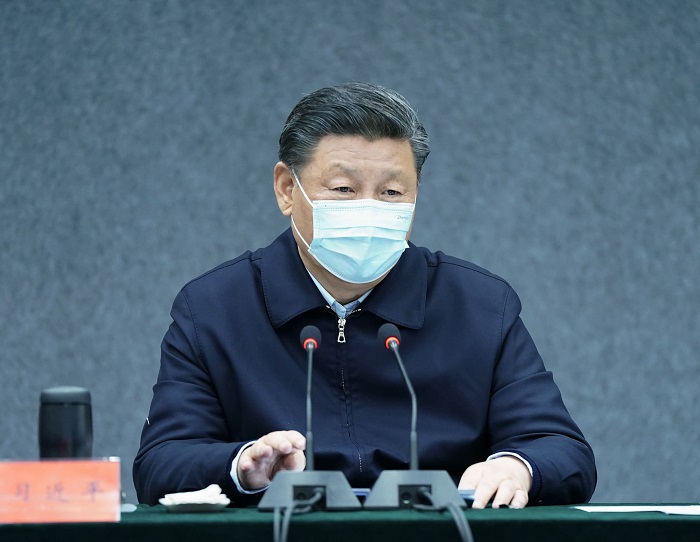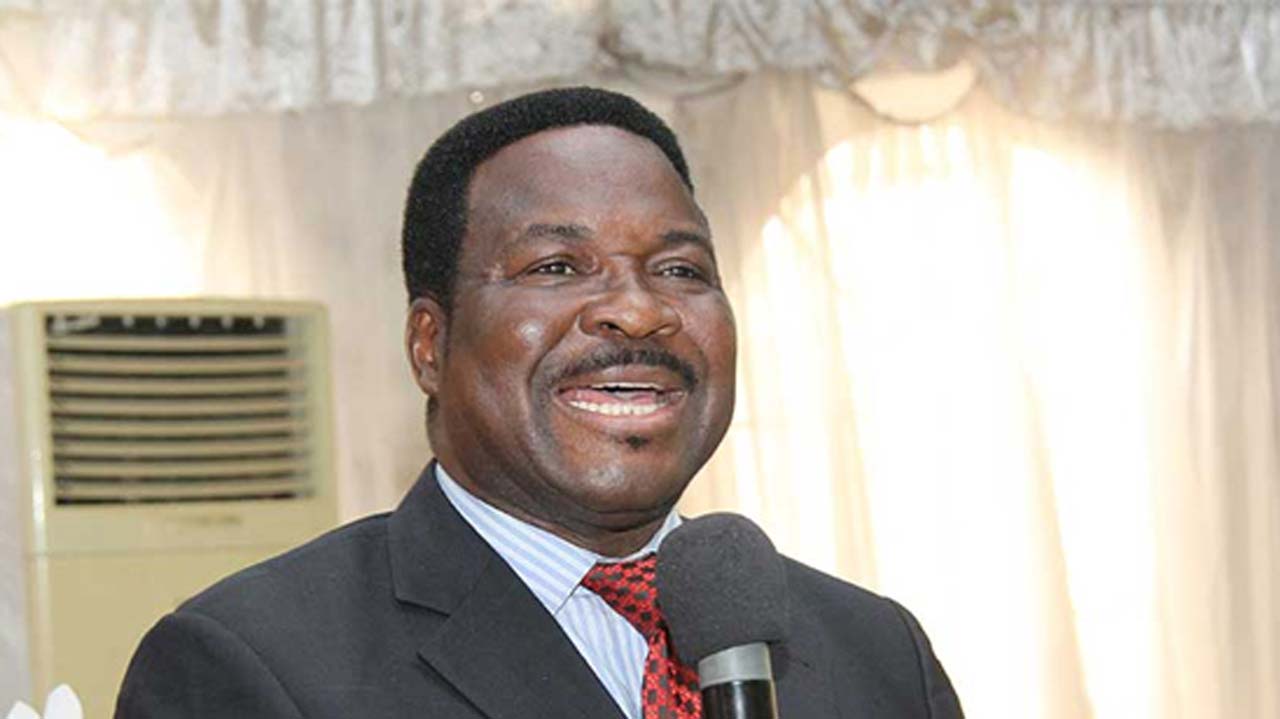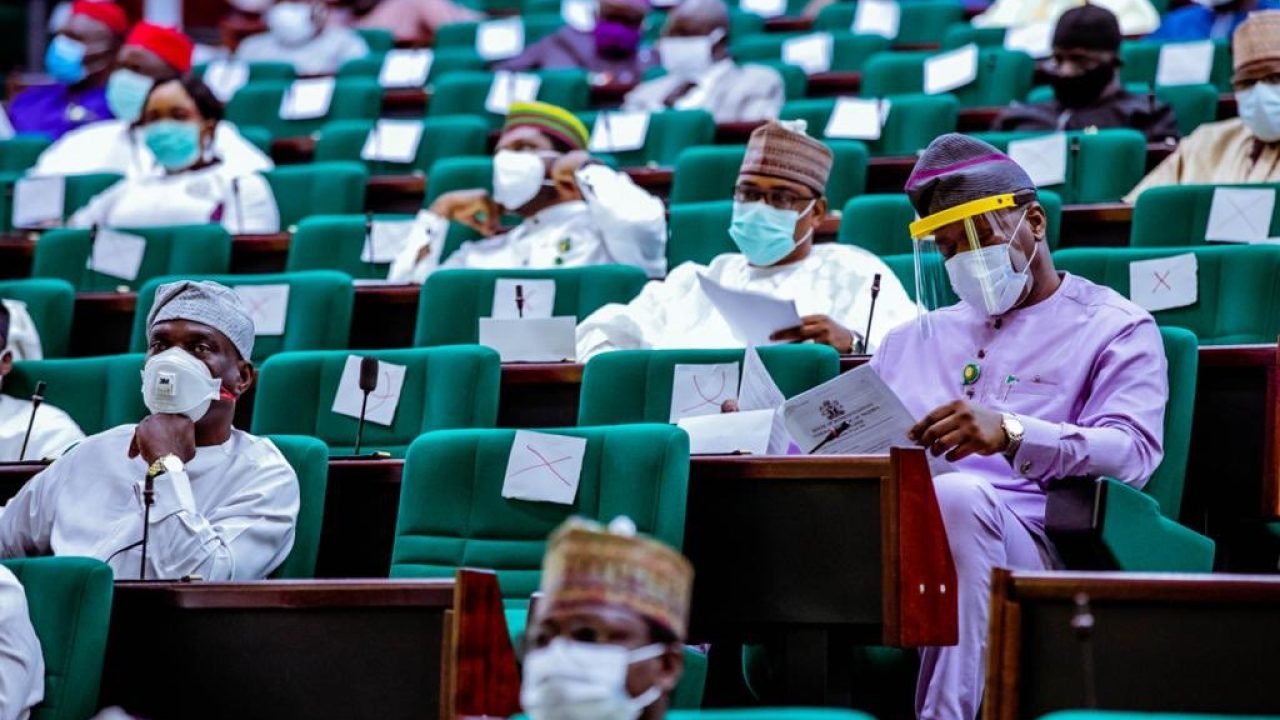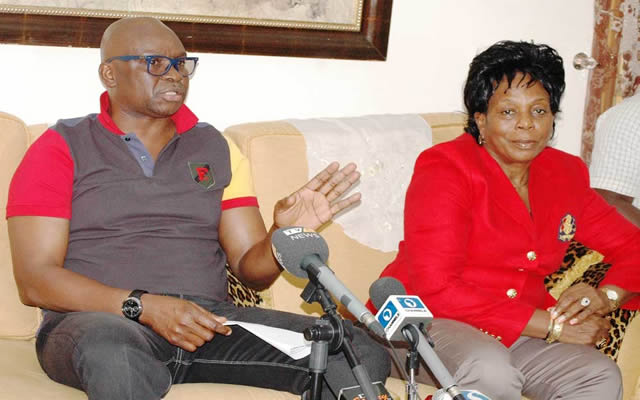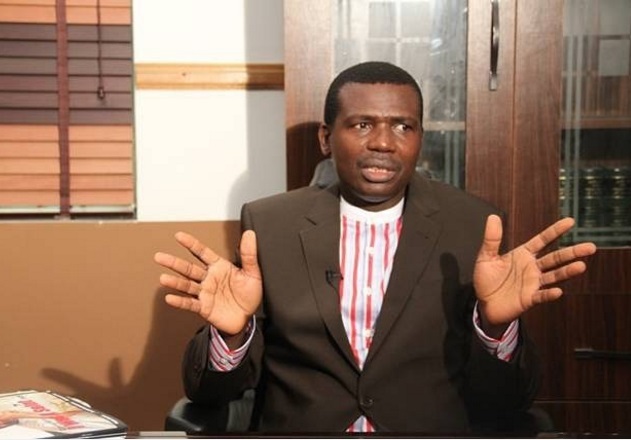The Chairman, Nigeria Bar Association (NBA) Section on Public Interest and Development (SPIDEL) Monday Ubani has replied the Minister of State for Labour and Employment, Festus Keyamo over his comment on the legality of the judicial panel of inquiry set up to investigate cases of police brutality.
TheNewsGuru.com, TNG reports that Keyamo, during a monitored Channels Television interview on Sunday said the panel was illegal and the Lagos State government doesn’t have the power to question the police and military.
He stressed that the agencies do not answer to the state governments but the Federal Government by virtue of the Constitution.
In a swift response, Ubani said the Minister “erred gravely in law and logic.”
According to him, this is a residual matter within the legislative competence of state governments, and that the power of all State Governments to set up Judicial Commissions of Inquiry to probe human rights abuse arising from police brutality is well-grounded in law.
See Ubani’s full statement below…
LEGAL COMPETENCE OF PANELS OF INQUIRY ON POLICE.
INTRODUCTION. This is written to counter the argument of Festus Keyamo SAN on Channels TV on Sunday Politics where he was saying that speaking as a lawyer and not as the Minister of the Federal Republic of Nigeria, “all the Panels of Inquiry set up by the various States of the Federation following the crisis that arose as the result of EndSars Protest all over the country is illegal” I disagree vehemently with him and let him know that he erred gravely in law and logic in his posturing tonight on Channels TV. Below is the summary of my response.
- 1 Recall that the accumulated grievances of various victims of Police brutality (more particularly, of members of the dissolved Special Anti-Robbery Squad) led to the “EndSars Protest” that occurred across the nation and which nearly degenerated into a full national crisis but for the intervention of well-meaning Nigerians on the issue. The alleged massacre of unarmed citizens on the 20th of October, 2020 raised temper and occasioned both national and International outrage which necessitated the setting up of various Panels of Inquiry across a number of States throughout Nigeria.
- 2 The genesis of the EndSars protest and the gruesome events which accompanied the protest were laid at the Emergency Meeting of the National Economic Council held in Abuja on the 15th day of October, 2020, and presided over by the Vice President Prof Yemi Osibajo SAN, where the members unanimously resolved to institute Judicial Commissions of Inquiry to deliver justice for all victims of the dissolved Special Anti-Robbery Squad (SARS) and other Police units.
1.3.The Judicial Panels which were set up in virtually all the states, except some States in the Northern Region included representatives of youths, students, civil society organisations and chaired by retired Judges. The Council also resolved and directed State Governors to immediately establish State-based Special Security and Human Rights Committees to be chaired by the Governors in their States.
- 4 The Committees are to supervise the newly formed Police tactical units and all other Security Agencies located in the States. The idea of the Special Security and Human Rights Committees in all States and the FCT is to ensure that Police formations and other Security Agencies in the State consistently protect the human rights of Citizens.
2.0.THE LEGAL CONSEQUENCE OF THE VARIOUS PANELS OF INQUIRY ON POLICE BRUTALITY AS OPINED BY Dr ONYEKACHI UBANI.
2.1.Sequel to the resolutions of both the Emergency Meeting of the National Economic Council held in Abuja on the 15th day of October, 2020 and, the State- based Special Security and Human Rights Committees – chaired by the Governors in their States; State Governors, have in exercise of the powers vested in them by the Tribunal of Inquiry Laws, instituted Judicial Commissions of Inquiry to probe complaints of human rights abuse by the citizens and make appropriate recommendations to the State Government.
2.2.Some human rights activists like Femi Falana SAN, Chief Mike Ozekhome SAN and others are of the firm view that the resolutions of the National Economic Council are perfectly in order as the Tribunal of Inquiry Law of each State qualifies as an existing law under section 315 of the 1999 Constitution. See Williams v Dawodu (1988) 4 NWLW (PT 87).
2.3.By virtue of Section 1 of the Tribunal of Inquiry Laws of various States, State Governors are vested with the power to constitute a Tribunal of Inquiry to inter alia inquire into the conduct of Officers or of any Officer or of any Governmental Department and related issues, or “into any matter in respect of which in the opinion an Inquiry would be for the Public welfare.”
2.4. It is pertinent to state that, the authority to inquire – designated to the said Tribunal by virtue of the above-mentioned Section is disjunctive and not conjunctive. The implication is that, the Tribunal set up by virtue of this Law has the authority to inquire into any (either one, several or all)
2.5 It remains an undisputed fact that the investigation of Police brutality is designed “to promote the welfare of the people”. Indeed, majority of the allegations of Police brutality pertain to extra judicial killing or murder, attempted murder, false imprisonment and assault occasioning harm which offences are created and penalised under the Criminal Code or Penal Code are applicable in Southern and Northern States respectively.
2.6.To that extent, Governors of States across Nigeria have the power to cause these complaints to be investigated with a view to preventing Police brutality in all its ramifications within their States.
2.7. Regrettably, in spite of the several decisions of the Supreme Court on the constitutional powers of State Governments over law and order including crime control, many persons have continued to believe that State Governments are appendages of the Federal Government as was the case under the defunct Military junta.
2.8. Unfortunately, the powers of Governors to institute Judicial Commissions of Inquiry to probe Police brutality has generated a needless controversy. With respect, tribunal of inquiry is not one of the items in the Exclusive List or the Concurrent List to the Constitution. Therefore, it is a residual matter within the legislative competence of state governments.
2.9.This was the bone of contention in the celebrated case of Fawehinmi v. Babangida (2003) 3 NWLR (Pt. 808) 604 where the Supreme Court held that:
“When it is remembered that the 1999 Constitution has made no provision for Tribunals of Inquiry as did the 1963 Constitution in Item 39 of the Exclusive list and Item 25 of the Concurrent list, it follows that, to repeat myself on the point, the power to make a general Law for the establishment and regulation of Tribunals of inquiry in the form of the Tribunals of Inquiry Act 1966 is now a residual power under the 1999 Constitution belonging to the States. However, in regard to the Federal Capital Territory Abuja, the power resides in the National Assembly.”
3.0. It has also been contended that the Judicial Panels lack the vires to summon Police officers who are in the public service of the Federal Government.
3.1. In Fawehinmi v Babangida (SUPRA) the Supreme Court dismissed such spurious contention. Speaking for the apex court, Uwaifo JSC (as he then was) asserted that “Sections 5 (c), 10 and 11(3) of the Tribunals of Inquiry Act, to compel the attendance of witnesses and the production of documents were constitutional and valid”
3.2. In view of the categorical pronouncement of the Supreme Court on the validity of Section 5 (c) of the Tribunal of Inquiry Act and the provision of Section 1 and 5 (c) of the Tribunal of Inquiry Law of the various States, it is submitted that the power of all State Governments to set up Judicial Commissions of Inquiry to probe human rights abuse arising from police brutality is well grounded in law.
3.3. In the same vein, the power of the Judicial Commission to summon police and military personnel as well as other officers in the public service of the federal government to testify in respect of allegations of human rights abuse cannot be questioned on solid legal grounds. Indeed, it is in the interest of all persons accused of violating the human rights of citizens to defend themselves in exercise of their fundamental right to fair hearing guaranteed by section 36 (1) of the 1999 Constitution (as Amended) . So many Panels have been set up known to us in history in Plateau, Rivers and many other States of the Federation and Police and the Army were invited and they testified in them all. So what is Keyamo SAN talking about?
3.4.The point must be re-emphasized that investigation of abuse of rights does not fall outside the powers of constitutive State Governments of Nigeria and should not be an issue at all. Even though the involvement of a Federal Government Agency (the Nigeria Police Force) gives rise to some concerns; a cursory look at the articulate provisions of Section 5 (c) of the Tribunals of Inquiry Law, Laws of Lagos State 2015 and the combined reading of Section 1 of the said Law is enough to dismiss every iota of doubt. In providing for the powers of the Tribunals, it states as follows:
3.5.“Subject to the provisions of this Act, a tribunal shall have and may exercise any of the following powers:
(c) to summon any person in Nigeria to attend any meeting of the Tribunal to give evidence or produce any document or other thing in the person’s possession…”
3.6.In the same vein, the Tribunals of Inquiry Act provides under its Section 5
(c)thus:
“the power to summon any person in Nigeria to attend any meeting of the tribunal to give evidence or produce any document or other thing in his possession and to examine him as a witness or require him to produce any document or other thing in his possession, subject to all just exceptions …”
3.7.By using the term “any person in Nigeria”, it is broad enough to include natural persons, corporate bodies, Government agencies etc. Thus, there is no preclusion of the Nigeria Police Force from being subject to the inquiry of the tribunal so constituted.
3.8.Corroboratively and for emphasis, the Supreme Court per Uwaifo JSC held in Fawehinmi v Babangida (SUPRA) held that: Sections 5 (c), 10 and 11(3) of the Tribunals of Inquiry Act, to compel the attendance of witnesses and the production of documents were constitutional and valid in so far as they applied
to the Federal Capital Territory” – thus dismissing every notion of immunity of Federal Government Agencies from being compelled to appear before tribunal of inquiries set up in the Federal capital Territory or any other State.
3.9.The argument that by virtue of Section 21 of the Lagos State Tribunal of Inquiry Laws (which is a replica of the Tribunals of Inquiry Laws of other States) holds no water in reference to the Panels of Inquiries set up by the various States to look into the incidence of Police brutality and incidental matters.
4.0.Section 21 of the Lagos State Tribunals of Inquiry law states as follow: “the powers conferred by this law on the Governor, may be exercised in respect of any matter within the legislative competence of the State”
4.1.By virtue of the 1999 Constitution of the Federal Republic of Nigeria (as amended) and the Fundamental Human Rights (Enforcement Procedure) Rules 2009, issues of Fundamental Human Rights vests on the state. Particularly, Fundamental Human Right matters fall under the Residual matters which can be legislated upon by the State Houses of Assembly.
4.2.The matters before the Panels of Inquiry across the States within the Federation pertains to matters involving the violation of persons within these States. Hence, it follows that the State panels have the powers and the legal backing to inquire into the matter of Police brutality and incidental matters and to call perpertrators of such violations – whether Officers of the Federal Government, State Government to give evidence or to defend themselves and to make recommendations.
5.0.ENFORCEABILITY OF RESOLUTIONS OF THE PANELS OF INQUIRY AS OPINED BY ONYEKACHI UBANI
5.1.Enforceability of judicial decisions in Nigeria has always been an issue in our jurisprudence particularly judgements obtained against Government Officials. However, with regards to enforcement of the resolutions of a Judicial Panel of Inquiry, the procedure is contained in Section 15 of the Tribunals of Inquiry Act.
5.2.It provides thus:
A tribunal shall, if so directed or required make any order in relation to any property or other matter dealt with in its report; and such order when made may be delivered to the Registrar of a High Court (which order the Registrar is empowered and required to receive and register without payment of a fee) and when so delivered the order shall have effect as a judgment of that High Court and may be enforced accordingly but shall not be reviewed in any Court by prerogative writ or otherwise howsoever and no appeal shall lie therefrom.
5.3.Corroboratively, the Tribunals of Inquiry Law, Laws of Lagos State 2015 makes similar provisions under its Section 15. By its provisions, the constituted tribunal or panel of inquiry is required to:
“Make and furnish to the Governor a full report in writing of its proceedings, findings and recommendations and record an opinion and reasons leading to its conclusion. Any member of the Tribunal dissenting from the conclusions will note his reason for such dissent”.
5.4.Sequel to this, the Governor is required (as would be determined by necessity) to:
“Make any order in relation to any property or other matter dealt with in the report; and such order when made may be delivered to the Registrar of a High Court (which order the Registrar is empowered and required to receive and register without payment of fee) and when so delivered the order will have effect as a judgment of that High Court and may be enforced accordingly but will not be reviewed in any Court by prerogative order or by any other means and, no appeal will lie from the order.”
5.5.With these provisions, the Governor can under the cumulative interpretation of Sections 15 and 21 of the Tribunals of Inquiry Law enforce remedies which are within the jurisdiction of the State High Courts which are majorly reparations (compensations) for the victims in form of a judgement entered against the erring party – being the Commissioner of Police of the particular State in his or her official capacity.
5.6.Moreover with an anticipated generous goodwill of the Federal Government, I do not know whether that goodwill still does exist in the light of the outbursts of Lai Mohammed and Festus Keyamo SAN both agents of the Federal Government(recall that it was the National Economic Council Resolutions of the Federal Government that led to the setting up of the States’ Panels in the first place). Hence, it is my view that, the Federal Government should accept the recommendations and resolutions of the various Tribunals of Inquiry for use in Policy formulation – to ensure that the bane of human rights violations by the Nigerian Police Force can no longer thrive.
6.0.Recommendation as opined by Dr Onyekachi Ubani is as follows:
6.1.1.As at today only the States in the Federation and the Federal Capital Territoty, Abuja can set up Tribunals of Inquiry over any issue in Nigeria.
6.1.2.These Tribunals can summon and investigate anybody whether corporate or individual on any issue especially matters that affect the “welfare” of the citizens of the country.
6.1.3.The present panels set up by the various States in the Federation are constitutional, legitimate and are empowered to inquire into the various allegations of human rights violations committed by the personnel of the Nigerian Police Force as nothing in the Constitution of Nigeria precludes them from doing so with the plethora of cases and samples already cited above.
6.1.4.Presently no judicial decision so far has pronounced the panels as unconstitutional despite the grumblings here and there. In fact the feeble attempt by the Chief Legal Officer of the Nigerian Police Force to institute a suit challenging the legality of the Panels was met with severe reprimand from the top hierarchy of the Force and the said suit was quickly withdrawn from the Court. We do not know of any other pending suit challenging the legality of the panels presently in any of the Nigerian courts.
6.1.5.Rather, astonishing news have been received across the various States in the Federation that some states have begun implementing the recommendations of the various Panels – by compensating the victims of Police brutality in Nigeria. Lagos State is an example of the States that have paid some of the victims of Police brutality.
6.1.6.For the purpose of ensuring that the sanctity of the human rights is upheld and that the bane of Police brutality is dealt with once and for all, State- based Judicial Panels of Inquiry are clearly preferable. In the meantime, the Federal Government is herein advised to show its concern and atone for the complaints of the Nigerian Youths and others for the manifest brutality meted out to them by the Police.
6.1.7.The Federal and State Government should be properly guided to go the whole hug in implementing all resolutions as would be reached by the various Judicial Panel of Inquiries. This resolutions should be geared towards implementing a holistic reform of the entire Nigerian Security apparatus as pertains to the RESPECT OF THE RIGHTS OF NIGERIANS, GENERALLY.
The State of Lagos is enjoined to follow its law on this Panel of Inquiry and do the needful. Time is ticking for everyone.
Dr Monday O. Ubani
Chairman NBA-SPIDEL

